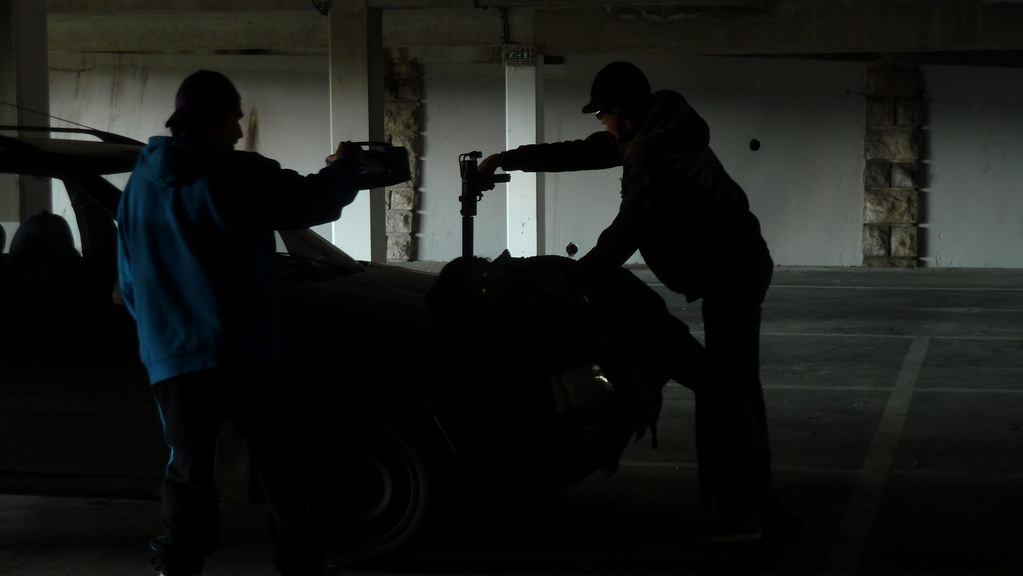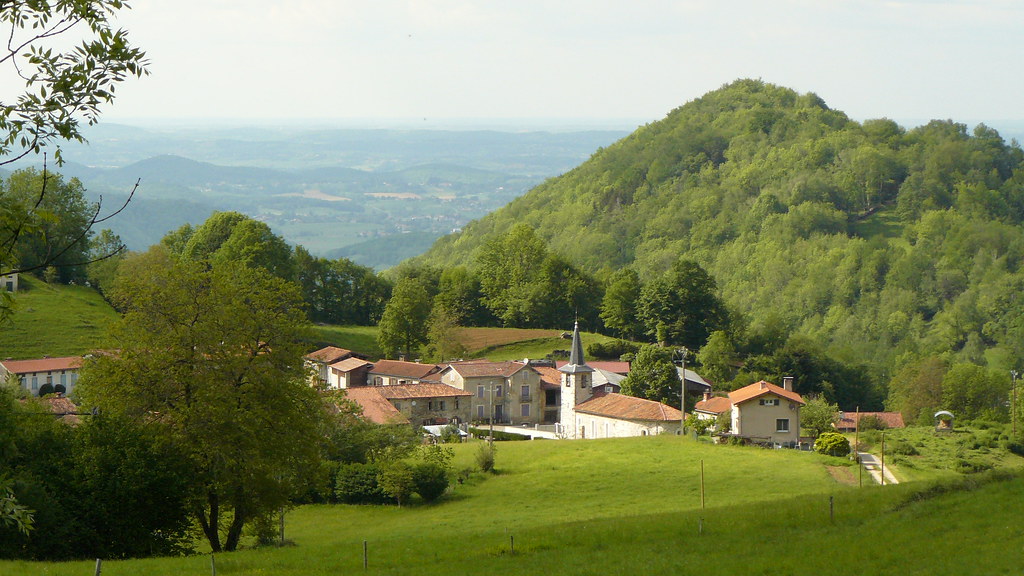#comminges
Text
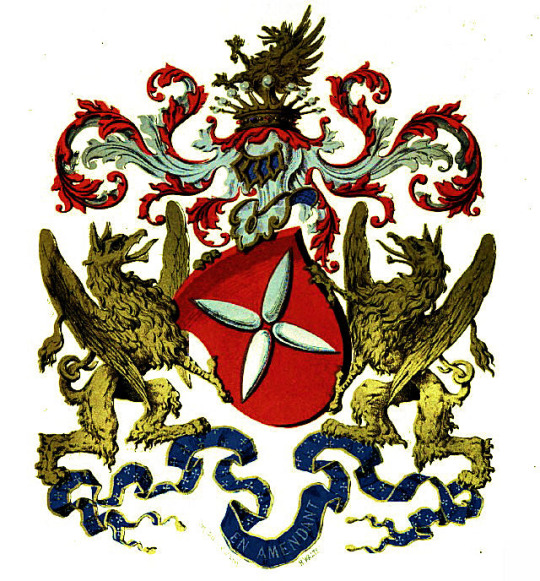
#coat of arms#blason#blazon#heraldry#europe#european#history#medieval#middle ages#count of comminges#comminges#cominges#helmet#crest
86 notes
·
View notes
Photo




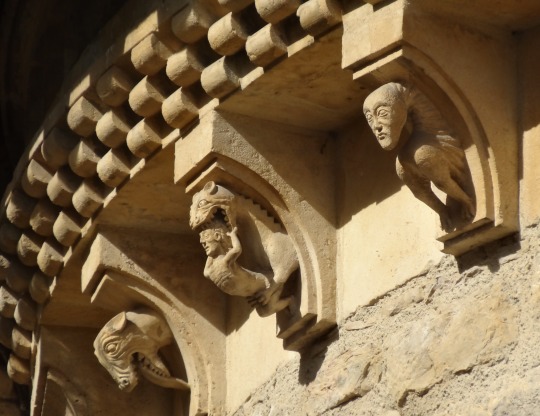
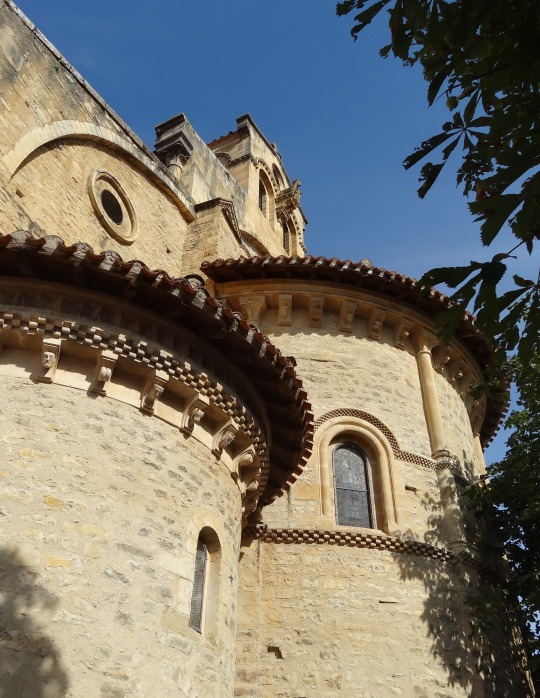
Nouveau retour à mon projet de présenter la plupart de mes 55500 photos (et des brouettes). Plus trop loin du présent….
2016. De retour de chez Christine, je passe quelques jours chez ma nièce, à Saint-Gaudens dans le Comminges (entre Toulouse et les Pyrénées)
Ici la collégiale romane (avec un joli petit monstre qui ne veut rien voir)
11 notes
·
View notes
Video
25/05/2013 tournage Waterproof Résurection par Dust...
Via Flickr :
un tueur de la KKK, société appartenant à l'immonde Kaalbuth qui recrute des adolescents pauvres des quartiers bas de la ville, sur le point d'éliminer la fille de l'ex inspecteur Georges Feelgood qui s'était infiltrée dans la société... un film produit par A.nonyme, réalisé par Michel Escaillas aussi à la caméra sur ce cliché Le tueur : Elie Cazaneuve La victime : Emma Chesnot a killer from the KKK, a company owned by the filthy Kaalbuth who recruits poor teenagers from the lower parts of the city, about to eliminate the daughter of ex-detective George Feelgood who had infiltrated the company... a film produced by A.nonyme and directed by Michel Escaillas un asesino del KKK, una empresa propiedad del asqueroso Kaalbuth que recluta a adolescentes pobres de los barrios bajos de la ciudad, a punto de eliminar a la hija del exdetective George Feelgood que se había infiltrado en la empresa... una película producida por A.nonyme y dirigida por Michel Escaillas
#pierreni#mister dust#flickr#photo#photographie#photography#court metrage#court métrage#cinéma#cinema#film policier#action#film d'action#comminges#kommingisthan#komingisthan#komingistan#saint gaudens#saint go#31800#marché aux volailles#parking
2 notes
·
View notes
Text

couvreur Saint-Gaudens
0 notes
Text
Occitania 4.-De Caraman a Fos

Entre Toulouse y el Valle de Arán español, serpentea esta carretera. El primer destino es un pueblecito llamado Rieux-Volvestre. Antigua ciudad episcopal. (https://www.plusbeauxdetours.com/tous-les-plus-beaux-detours/detour-par-rieux-volvestre-en-haute-garonne/), la Catedral recuerda mucho su torre a Toulouse. Los puentes, las fachadas...

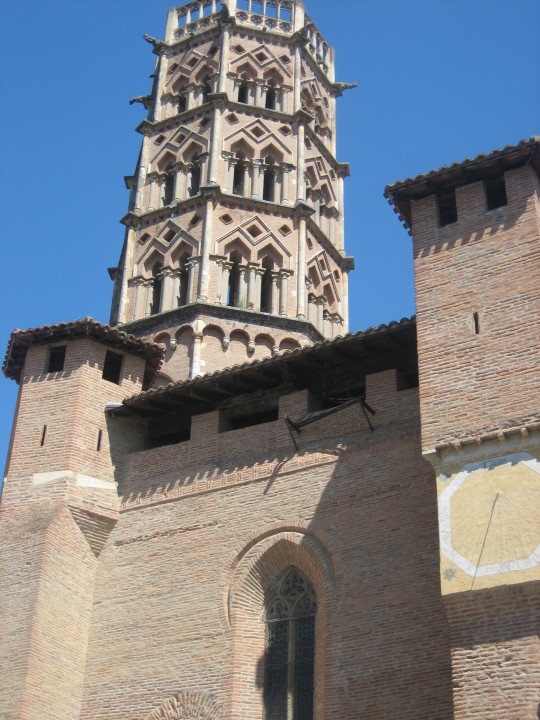

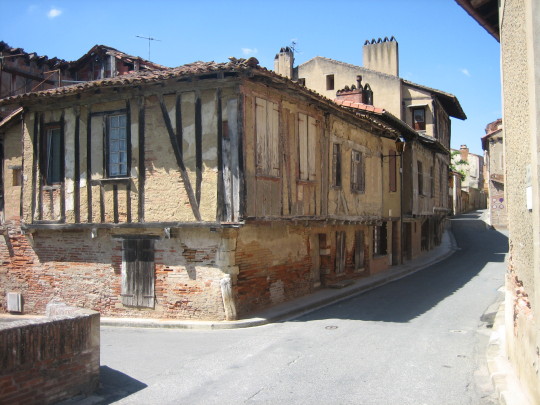
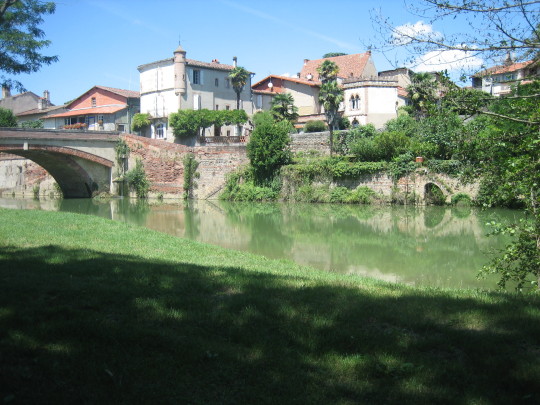
Montesquieu-Volvestre, es un pueblecito, cuya organización recuerda a sus tiempos de bastida.
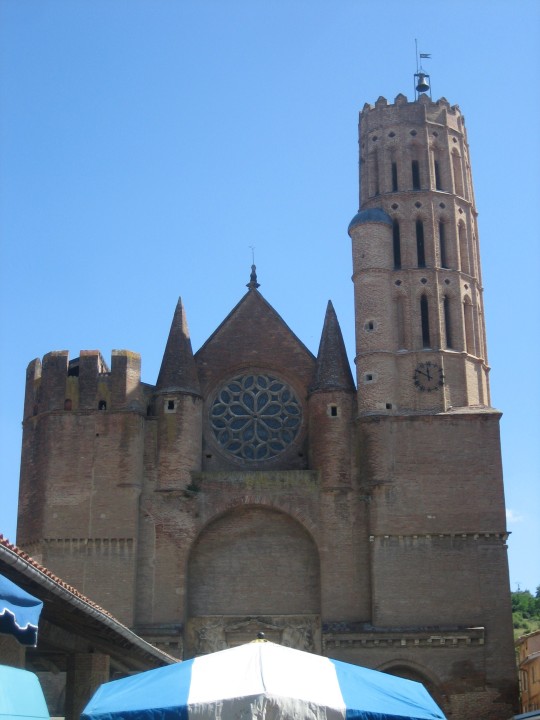
A continuación un pueblo con un nombre especial, Cazéres. , fue una casa de campo de finales del siglo XIII,

Pasando por St Gaudens, Y su Colegiata románica de San Pedro.

Pasando por el templo de Saint Just de Valcabréres, una Basílica Románica.
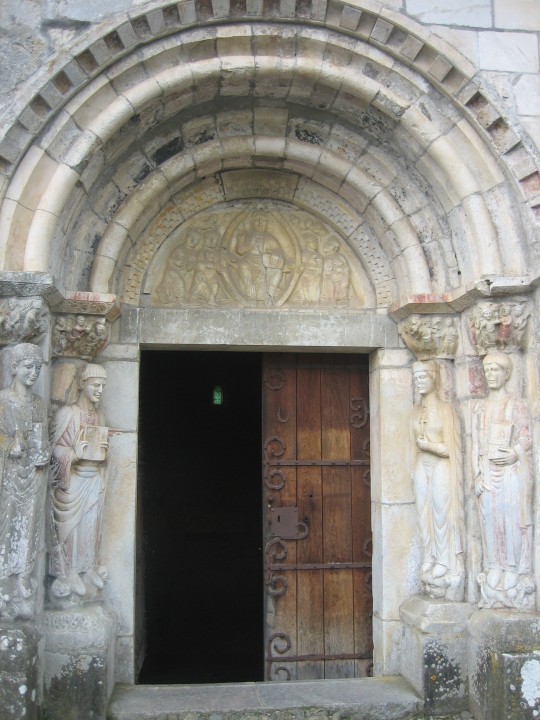

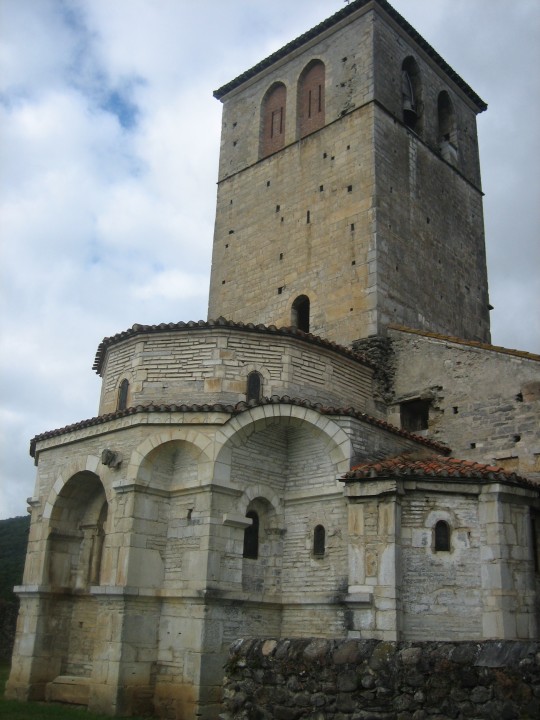
Llegamos a Saint Bertrand de Comminges, Un pueblo medieval, amurallado, famoso por su Catedral en el Camino de Santiago y su Claustro, tres lienzos románicos del siglo XII y uno gótico, pequeñito y con unas vistas a los Pirineos...Casas de madera del siglo XVI, una maravilla a descubrir, así como sus fiestas medievales, a las que pude asistir, con una buena amiga.
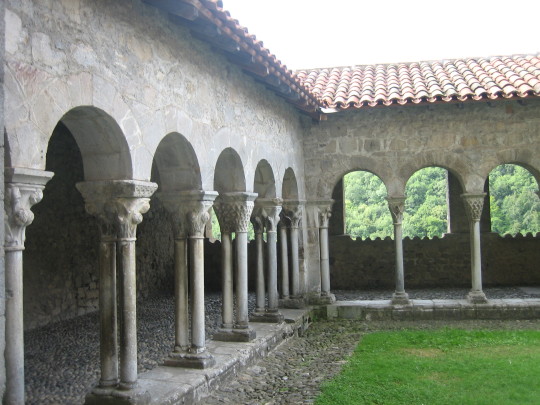

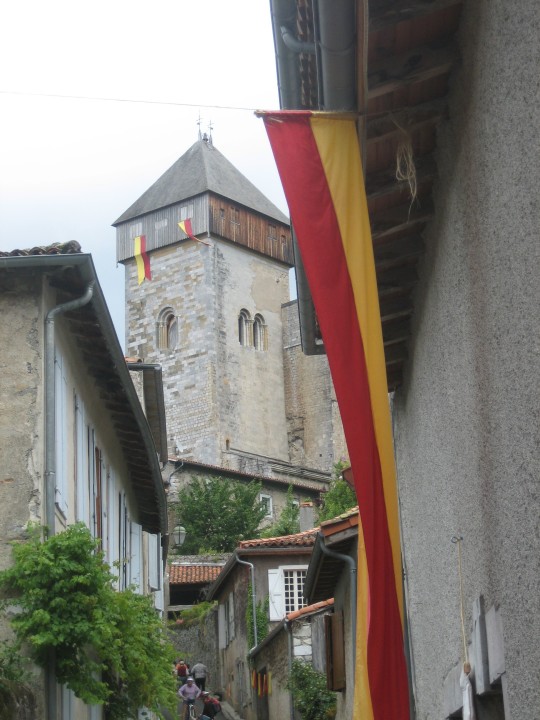
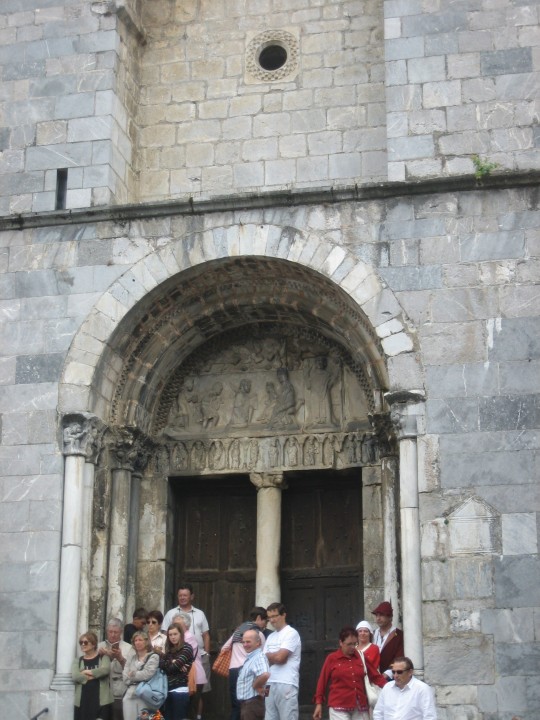


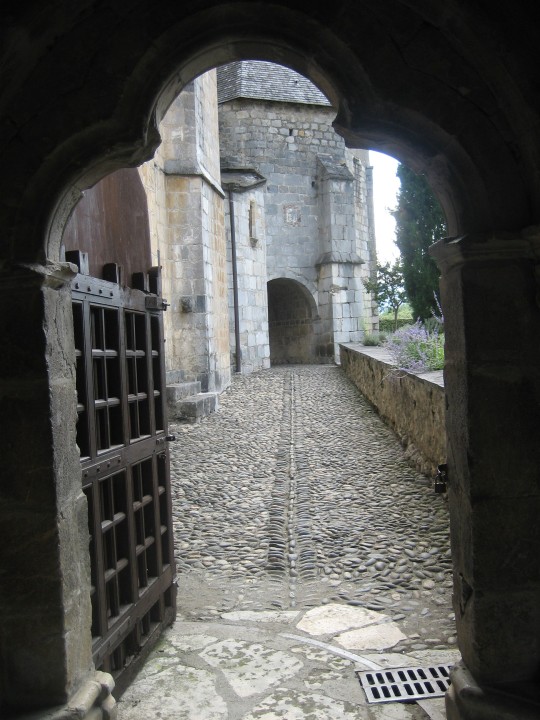

Y por último Fos., la última villa antes de entrar en España, por el Valle de Arán.



Cerca de aquí, el Valle de Oô


St Beat
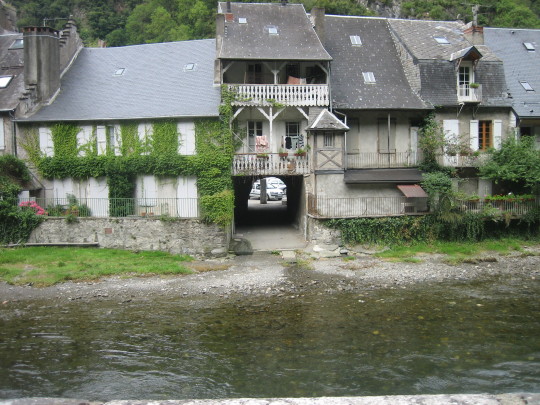
Y Bagneres de Luchon, ciudad termal y con pistas de esquí, en Superbagneres.

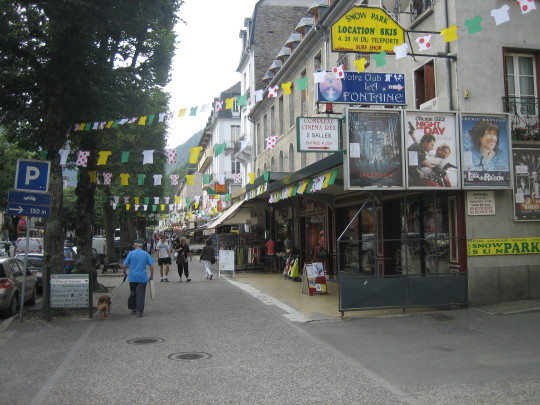
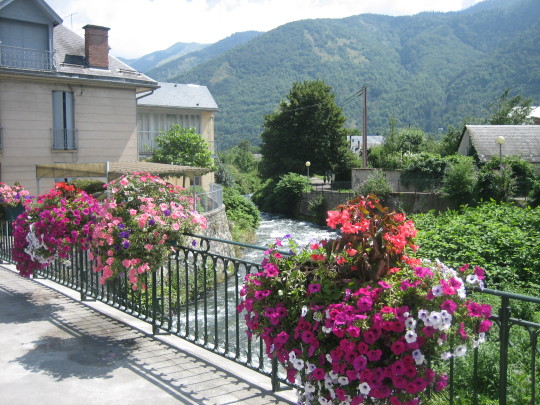
0 notes
Text
For these and manie other valiauntises, noble feates, and victories, which God of his infinit goodnes daily gaue vnto him, the Prince was honnored and renound not onlie in his Realme, but also in other Realmes and quarters. He was also taken of the Kinge his father as the first and principall of his Cuntrie Councell, and as nature appeareth he was right deere and welbeloued of the Kinge, vntill such time as his fame appeared by the sinister report of some euell disposed people, wch laboured to make discension betweene the Kinge and the prince his sonn ; by reason whereof, and by th'actes of youth, which he excersised more then meanely, and for the greate recourse of people vnto him, of whom his courte was at all times more aboundant then the Kinge his father's, the Kinge suspected that he woulde vsurpe the Crowne he beinge aliue, which suspicious Jealosie was occasion that he in parte withdrewe his affeccion and singuler loue from the Prince.
But when this noble Prince was aduertised of his father's iealosie and mistrust by some his secret friends of the Kings Councell, he disguised himselfe in a gowne of blewe satten or damaske made full of iletts or holes, and at euerie ilet the needle wherewith it was made hanginge there by the thridde of silke, and about his arme he wore a doggs Collor sett full of S. S. of goulde and the terretts of the same also of fine golde. And thus apparrelled with greate Companie of Lords he came to the Kinge his father, who at that time lay at Westminster ; where at his comminge by his owne commaundement not one of his companie durst aduance himselfe further then the fire in the hall, notwithstandinge they were greatlie and ofte desired to the contrarie by the Lords and greate estats of the Kings Courte. And that the Prince had commaunded to giue the lesse occasion of mistrust to the Kinge his father ; but he himselfe accompanied of the Kings house to only passed forth to the Kinge his father, to whome after due salutacions he desired to show the intent of his minde in secrett manner. Then the Kinge caused himselfe to be borne in his chaire, (because he was diseased and might not goe) into his secrett chamber ; where in the presence of three or foure persons in whome the Kinge had his most confidence he commaunded the Prince to shewe the effect of his minde. Then the Prince kneelinge downe before his father saide to him these words : 'Most redoubted Lorde and father I ame this time come to your presence as your Liegeman, and as your sonn naturall, in all things to obey your Grace as my Soueraigne Lorde and father. And whereas I vnderstande that you haue me in suspecte of my behauour against your Grace, and that you feare I would vsurpe your Crowne against the pleasure of your highnes. Of my conuersacion your Grace knoweth that if you weare in feare of any man within your Realme of what estate soeuer he were, my duty were to the endainger of my life to punish that person, thereby to araise that sore from your harte. And then howe much rather ought I to suffer death to bringe your grace, that hath bene and yet be the most hardie and renowned Kinge of the worlde, from that feare that ye haue of me, that ame your naturall sonn and liegeman. And to that intent I haue this day by confession and by receauinge my maker prepared myselfe. And therefore most redoubted Lorde and father I desyre you in your honnor of God, for the easinge of your harte heere tofore your knees to slaye me with this dagger': (and at that worde with all reuerence he deliuered to the Kinge his dagger, sayinge) 'my Lord and father, my life is not so desirous to me that I woulde liue one daye that I shoulde be to your displeasure, nor I couet not so much my life, as I doe your pleasure and wellfare. And in your thus doinge here in the presence of those lords, and before God, and the daye of Judgement, I cleerelie forgiue you my death.' At these words of the Prince, and the Kinge taken with compassion of harte caste from him the dagger, and imbraced the Prince, and kissed him, and with effusion of teares saide vnto him : 'My right deere and hartelie beloued Sonn, it is of troth that I partlie had you in suspect, and as I now perceaue vndeserued on your part, but seeinge this your humilitie and faithfullness, I shall neither slay you nor frome hencefoorth anie more haue you in mistrust, for no reporte that shalbe made vnto me. And therefore I assure you vppon myne honnour.' And thus by his greate wisdome was the wrongfull imaginacion of his fathers hart utterlie avoyded,and himselfe restored to the Kings former grace and fauour.
Anonymous, The First English Life of Henry the Fifth, ed. C L. Kingsford, (written 1513, published Clarendon Press, 1911)
A partial modernisation can be read here. This account is believed to have been sourced from the (non-surviving) report of the Earl of Ormond, a member of Thomas, Duke of Clarence's household.
#henry v#henry iv#father and son#first english life of henry the fifth#early modern texts#political crisis of 1412#prince henry's dagger incident
5 notes
·
View notes
Text




Lauragais (2) (3) (4) by Pableauo
Via Flickr:
(1) Blé encore vert, arbres et ciel chargé, juste avant un orage.
Wheat still green, trees and cloudy sky, just before a storm.
(2) Un ciel menaçant, comme on les aime.
A threatening sky, as I like.
(3) Les alentours de Saint-Bertrand-de-Comminges.
The surroundings of Saint-Bertrand-de-Comminges.
(4) La tour de la Basilique Saint Just dans le Comminges. Vue depuis la colline de Saint-Bertrand-de-Comminges, elle émerge au-dessus des arbres, au milieu d'une ambiance rendue verdoyante par une petite pluie plutôt inhabituelle à la mi-août. On devine le village de Barbazan au loin, dans la brume.
The tower of the Saint Just Basilica in Comminges Seen from the hill of Saint-Bertrand-de-Comminges, it emerges above the trees, in the middle of an atmosphere made green by a rather unusual little rain in mid-August. We can see the village of Barbazan in the distance, in the mist.
6 notes
·
View notes
Photo

12 septembre 1213 : bataille de Muret ➽ http://bit.ly/Bataille-Muret Elle a lieu dans le cadre de la lutte contre les Albigeois menée par l’Église catholique contre l’hérésie et oppose : d’un côté Raymond VI, comte de Toulouse, Pierre, roi d’Aragon et seigneur de Montpellier et Bernard de Comminges ; de l’autre les troupes du roi Philippe Auguste commandées par Simon de Montfort, vicomte d’Albi, de Béziers et de Carcassonne
#CeJourLà#12Septembre#bataille#Muret#croisade#Albigeois#Église#catholique#hérésie#histoire#france#history#passé#past#français#french#news#événement#newsfromthepast
7 notes
·
View notes
Text
Saint of the Day – 16 October – Saint Bertrand of Comminges (c1050-1123) Bishop
Saint of the Day – 16 October – Saint Bertrand of Comminges (c1050-1123) Bishop of Comminges, in the Archdiocese of Toulouse, France, Reformer – both religious and civil, Peace-maker, Miracle-worker. Born as Bertrand de l’Isle in c1050 in France and died on 16 October 1123 of natural causes. Patronage – of the Town named after him, Saint-Bertrand-de-Comminges, France. He was Canonised in 1222 by…
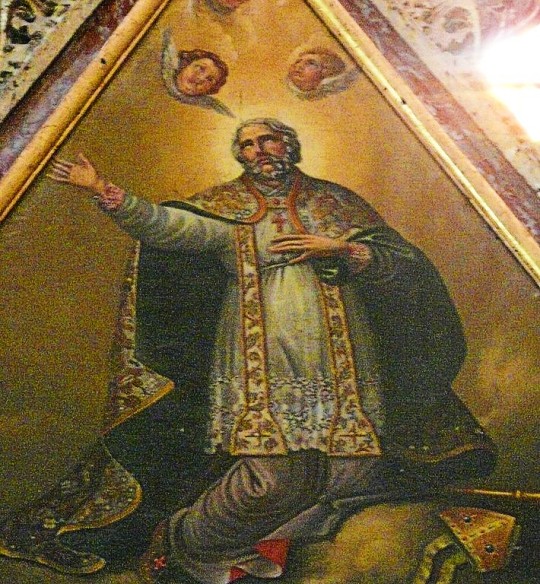
View On WordPress
2 notes
·
View notes
Text
“The Tide Letter” as written by Lady Elizabeth Tudor to her sister, Queen Mary.
“] If any ever did try this olde sayinge that a kinges worde was more than a nother mans othe [oath] I most humbly beseche your Majestie to verefie it in me and to remember your last promis and my last demaunde that I be not condemned without answer and due profe wiche it semes that now I am for that without cause provid [proved] I am by your counsel from you commanded to go unto the tower a place more wonted for a false traitor, than a tru subject wiche thogth I knowe I deserve it not, yet in the face of al this realme aperes that it is provid. wiche I pray god I may dye the shamefullyst dethe that ever any died afore [if] I may mene any suche thynge; and to this present hower I protest afor God (Who shall judge my trueth, whatsoever malice shall devis) that I neither practiced, conciled nor consented to any thinge that might be prejudicial to your parson any way or daungerous to the state by any mene [means]. And therefor I humbly beseche your majestie to let me answer afore your selfe and not suffer me to trust your counselors yea and that afore I go to the tower (if it be possible) if not afor I be further condemned, howbeit I trust assuredly your highnes wyl give me leve to do it afor I goe, for that thus shamfully I may not be cried out on as now I shall be, yea and without cause. Let consciens move your highness to take some bettar way with me than to make me be condemned in al mens sigth [sight] afor my desert knowen. Also, I most humbly beseche your higthnes to pardon this my boldnes wiche innocency procures me to do togither with hope of your natural kindnis [kindness] wiche I trust wyl not se me cast away without desert, wiche what it is I wold desire no more of God but that you truly knewe. Wiche thinges I thinke and believe you shal never by report knowe unles by your selfe you hire [hear]. I have harde [heard] in my time of many cast away for want of comminge to the presence of ther prince and in late days I harde [heard] my lorde of Somerset say that if his brother had hime suffer’d to speke with him he had never suffer’d, but the perswasions wer made to him so gret that he was brogth [brought] in belefe that he coulde not live safely if the admiral lived and that made him give his consent to his dethe. Thogth [though] thes parsons [persons] ar not to be compared to your majestie yet I pray god that evil perswations [persuasions] perswade not one sistar agaynst the other and al for that they have harde [heard] false report and not harkened to the trueth.
[f.3v] Therefor ons [once] again kneling [kneeling] with humblenes of my hart, bicause I am not suffer’d to bow the knees of my body I humbly crave to speke with your higthnis wiche I wolde not be so bold to desire if I knewe not my selfe most clere as I knowe my selfe most tru, and as for the traitor Wiat [Wyatt] he migth [might] paraventur [peradventure] writ me a lettar but on my faithe I never receved any from him and as for the copie of my lettar sent to the frenche kinge I pray God confound me eternally if ever I sent him word, message, token or lettar by any menes, and to this my truth I wil stande in to my dethe.
I humbly crave but only one worde of answer from your selfe.
Your hignes most faithful subject that hathe bine from the beginninge, and wylbe to my ende. Elizabeth.”

#tudor dynasty#the Tudors#Elizabeth Tudor#Mary Tudor#Mary I of England#queen elizabeth i of england#queen Mary of England
29 notes
·
View notes
Text




Le Comminge le temps d'une journée sait réserver quelques jolies surprises au détour d'un chemin ou d'une ruelle. Un jeune cerf élégant, un joli lac et bien sûr la rivière "je n'ai rien d'autre à faire, rien de rien...".
3 notes
·
View notes
Text
Expansion of the royal domain
The way in which the kingdom was ruled in its different provinces had always varied according to the degree that power had been permanently or temporarily devolved to apanage princes and great nobles or that representative assemblies continued to function. It is therefore axiomatic that there was no 'system of government' in the France of the Renaissance. The question is: was there a tendency for the kingdom to become more centralised? R. Bonney has wisely cautioned against the over-use in French history of the term 'centralisation', a term coined in 1794. The main distinction drawn in the early modern period, as Mousnier made clear, was that between the king's 'delegated' and 'retained' justice, the latter covering all the public affairs of the kingdom in which the crown was supreme and the former the private affairs of his subjects. No one would pretend, however, that a clear line of division was ever established between the two.
If we consider the case of the apanages and' great fiefs, for instance, the century from the reign of Louis XI is usually considered definitive in their suppression. In 1480, there were around 80 great fiefs. By 1530 around half of these still existed. The rest were in abeyance or held by members of the royal family. Within the royal house, the apanage of Orleans was reunited to the crown on the accession of Louis XII, although thereafter used periodically for the endowment of the king's younger son, permanently so after the reign of Louis XIV. The complex of territories held by the Bourbon and Bourbon-Montpensier families fell by the treason of the Constable in 1523. Burgundy (and temporarily Artois and Franche-Comté) were taken over in 1477. Among the great fiefs, the county of Comminges was united to the crown on the death of count Mathieu de Foix in 1453, the domains of the Armagnacs (such as the county of Rodez) were confiscated on the destruction of Jean V at Lectoure in 1473. They found their way by the reign of Francis I into the hands of the royal family, through the marriage of Jean V's sister to the count of Alençon. The last Alençon duke, Charles, married Francis I's sister, Marguerite of Angoulême, and Alençon's sister, Françoise, married duke Charles of Vendôme, grandfather of Henry IV. Brittany was acquired through war and marriage alliance in the 1490s, Provence and the domains of the house of Anjou after the death of king René and then of Charles d'Anjou in 1481. The archives of the Chambre des comptes of Anjou for the early 1480s give ample evidence of the king's determination to exploit his new acquisition as soon as possible.
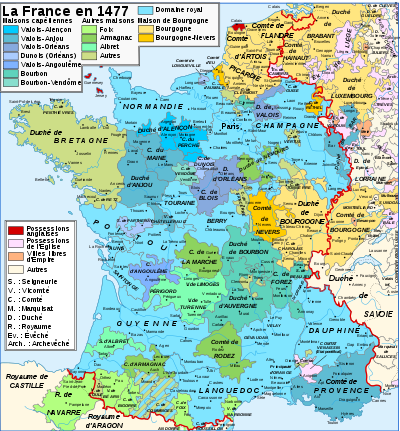
It should not be assumed that the crown pursued a consistent determination to lay hands on all these territories and rule them directly. There was usually a more or less lengthy period of adjustment to a new status. Some apanages and territories taken over by Louis XI were absorbed into the general administration of the rest of the kingdom. This was clearly the case with Burgundy and Picardy-Artois in 1477, both of them in the area under the jurisdiction of the Parlement of Paris. Yet even here, Louis XI had to tread warily in winning over the support of the regional nobility and discontent was apt to break out until the end of the fifteenth century. On Louis's death, for instance, a rising occurred in Picardy at Bertrancourt near Doullens, with cries of 'there is no longer a king in France, long live Burgundy!' The absorption of Artois proved to be an impossible undertaking and had to be renounced in 1493.
Elsewhere, absorption of apanages that were distant from the centre of royal power left affairs locally much as they had been before. The little Pyreneen county of Comminges was governed much as it had been under its counts, with privileges confirmed by Charles VIII in 1496. Only with the work of royal commissioners in the tax-assessing process in the 1540s, the first time an outside power had actively intervened in the affairs of the local nobility, did this begin to change. Auvergne, an apanage raised to a duchy in 1360, was confirmed to the Bourbons in 1425 on condition that their whole domain became an apanage. The duchy was confiscated from the Constable in 1523 but transferred by the king to his mother in 1527 and only absorbed into the royal domain in 1531. Even after that, it formed the dower of Charles IX's queen and then part of the apanage of François d'Anjou, his brother. In the contiguous county of Forez, also confiscated in 1523, little local opposition emerged to the change of regime; although the local chambre des comptes was shortly suppressed, most local judicial officials, along with the entire administrative structure, were retained. Except for a few partisans of the Constable, it seems that there was no great upheaval. Louise de Bourbon, the Constable's sister and princess of La Roche-sur-Yon, demanded a share of the inheritance - Forez, Beaujolais and Dombes. Beaujolais and the principality of Dombes eventually went to Louise's son, Montpensier.
The county of Auvergne, enclaved in the duchy, was held by the duke of Albany in his wife's name, and was then inherited from the last of the La Tour d'Auvergne family by Catherine de Medici. Catherine brought it to the crown by her marriage with Henri II in 1533 but she continued to administer it as her own property. She left it to Charles IX's bastard, Charles de Valois, but her daughter Marguerite made good her claim to it in 1606 and it only entered the royal domain definitively when she willed it to Louis XIII.
After her marriage to Charles VIII in 1491, Brittany was administered as her own property by queen Anne, technically still duchess but in reality sharply circumscribed in her power, until her husband's death restored some of her freedom of action in 1498. Having already established friendly relations with Louis XII when he was still duke of Orleans, she was prepared to accept his offer of marriage after the annulment of his marriage to Louis Xl's daughter, Jeanne, had been agreed. The contract which accompanied the marriage in January 1499 tied the duchy to the crown provisionally on condition that it always passed to the second son of the marriage, while in the absence of issue the duchy was to revert to Anne's heirs on her own side. Anne was able to act rather more independently during her marriage to Louis XII though the conditions of the contract were not observed. On her death Brittany was inherited by her elder daughter Claude, wife of Francis I, who transmitted her rights to her son the dauphin. The queen had, however, transferred the government of the duchy to her husband in 1515 and he continued to rule it in the name of his son François on Claude's death, entitling acts as 'legitime administrateur et usufructuaire' of his son's property. When the dauphin's majority in 1532 brought the question of the imminent personal union of the duchy to the kingdom to the foreground, it was arranged for the Breton estates to 'request' full union with France but on terms which guaranteed Breton privileges and maintained the principle that the dauphin would be duke of Brittany. Only in 1536, on the death of the dauphin, was the union with the kingdom complete and no more dukes were crowned at Rennes. What had been done was the annulment of the Breton succession law, which included females, in favour of the French royal succession law. Late in 1539, it was decided that the new dauphin Henri would have the government of Brittany 'to govern as he pleases', though the documents were delayed by the king's illness. A 'Declaration' transferring Brittany to Henri was drawn up in 1540. In practice, the government of the duchy seems not to have been much changed.
The lands of the house of France-Anjou posed a complex problem. René of Anjou, titular king of Jerusalem, Sicily, Aragon and Naples, was count of Provence in his own right, of Maine and Anjou as apanagiste and Guise by succession. As early as 1478, Louis was scheming to ensure that king René, who had no surviving son, did not leave his territories of Anjou, Provence and Bar to his grandson, René II of Lorraine, warning the general of Languedoc that his region would be 'destroyed' if Provence fell into other hands. On the 'good' king's death in 1480, most of his domains passed to his cousin Charles IV d'Anjou, count of Maine, who died childless in 1481, when Maine and Anjou reverted to the crown, thereafter to be granted out to members of the royal family such as Louise of Savoy. At the same time Provence was acquired by Louis XI by Charles IV's will and the county of Guise was disputed between the houses of Armagnac-Nemours, Lorraine (heirs of René I of Anjou and successors as titular kings of Jerusalem and Sicily) and Pierre de Rohan, marshal de Gié. From 1481, however, the king ruled in Provence as 'count of Provence and Forcalquier'. The lord of Soliès, Palamède de Forbin, who had persuaded Charles d'Anjou to leave the county to the king, was rewarded with the post of governor. The major change came in 1535 with the edicts of Joinville and Is-sur-Tille on the government of Provence, limiting the scope of the old institutions of the Estates and the Sénéchal and increasing that of the Parlement of Aix in justice and of the royal governor in administration. Curiously, Francis I was reported as having said that he felt an obligation to 'ceux de Guise', the house of Lorraine in France, since Louis XI had despoiled them of their inheritance of Provence and Anjou.
The major surviving complex of apanage lands by the middle of the sixteenth century was that held by Antoine de Bourbon, now first prince of the blood and next in line to the throne after the immediate royal family, and his wife Jeanne d'Albret. These involved a group of territories held by different tenures. The Albret inheritance brought the titular kingship of Navarre with a small fragment of the ancient kingdom of Navarre north of the Pyrénées that was held in sovereignty. In the counties of Foix, Albret and Béarn, the family held effective sway under only the most distant royal sovereignty, though Louis XI saw fit to pose as the protector of the young François-Phébus in 1472. In 1476, he sought to revise local tariffs against Albret interests and in 1480 attempts to levy a taille for the gendarmerie there stirred up a rebellion. In western France, the duchy of Vendôme, erected as late as 1515 to detach it from dependence on the duchy of Anjou, was held as an apanage under rather closer royal supervision. In the north, the complex of lands administered from La Fère-sur-Oise and centring the county of Marle was held directly of the king or of the Habsburg ruler of the Netherlands, rendering the family, to some, unreliable. Practical power stemmed from the holding of the governorships of Picardy and of Guyenne by the Bourbons and Henri d'Albret.
Other independent territories persisted, such as the vicomté of Turenne, where the vicomte (of the La Tour d'Auvergne family) ruled with regalian rights until the eighteenth century, could raise taxes, coin money, make war and render justice as a limited monarch in conjunction with very active local estates.
David Potter - A History of France, 1460-1560- The Emergence of a Nation State
#xv#xvi#david potter#a history of france 1460 1560: the emergence of a nation state#louis xi#louis xii#charles iii de bourbon#mathieu de foix#jean v d'armagnac#françois i#charles iv d'alençon#marguerite d'angoulême#rené d'anjou#charles viii#charles ix#élisabeth d'autriche#louise de bourbon#gilbert de montpensier#catherine de medici#house of la tour d'auvergne#charles de valois#louis xiii#anne de bretagne#jeanne de france#claude de france#charles iv d'anjou#louise de savoie#house of guise#capetian house of bourbon#antoine de bourbon
4 notes
·
View notes
Photo

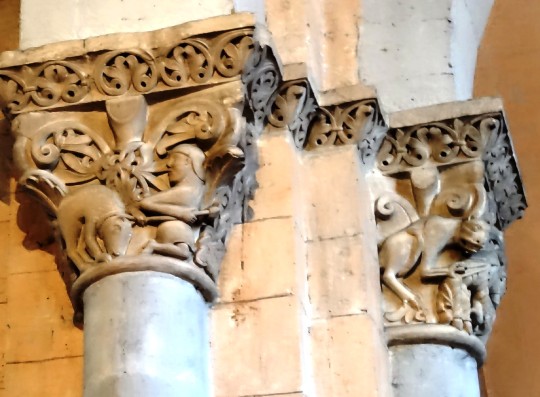

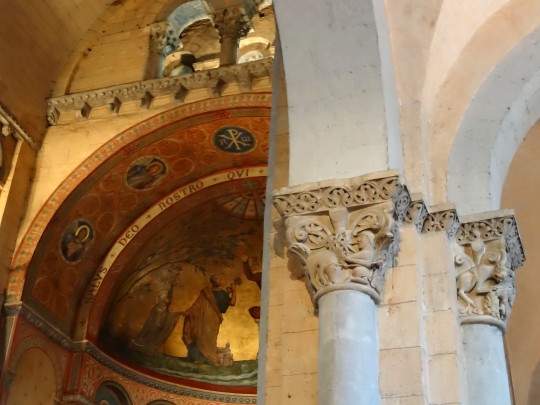

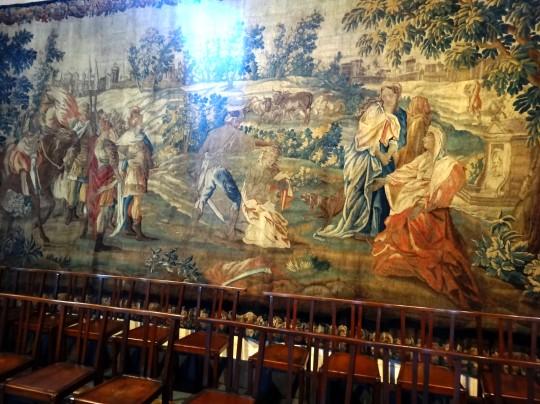

Nouveau retour à mon projet de présenter la plupart de mes 55500 photos (et des brouettes). Plus trop loin du présent….
2016. De retour de chez Christine, je passe quelques jours chez ma nièce, à Saint-Gaudens dans le Comminges (entre Toulouse et les Pyrénées)
Ici la collégiale romane : l’intérieur avec de belles tapisseries d’Aubusson et une note assez amusante !
#souvenirs#saint-gaudens#comminges#art roman#collégiale#tapisserie#téléphone#chapiteau#appel de dieu#aubusson#tapisserie d'aubusson
5 notes
·
View notes
Video
15/05/2023 village de Herran 31160 suppression compte flickr pro par Dust...
Via Flickr :
posé devant la colline du Montagnat et la vallée de la Garonne village of Herran posed in front of the Montagnat hill and the Garonne valley pueblo de Herran posa frente a la colina de Montagnat y el valle del Garona cela fait un moment que j'ai cette désagréable impression que flickr pro se moque de moi... des années ou il ne se passe rien à par le prix qui n'arrête pas de monter, 30% voir plus en 4 ans ha si, il y a un truc qui a changé, c'est la manière de poster un commentaire, qui est nouvelle certes mais nulle puisque cela rajoute 2 clics sans amener quoique ce soit ne pas pouvoir changer de page de galerie en haut de page est par exemple une chose très agaçante surtout depuis que le stockage n'est plus limité et multiplie les pages d'ailleurs le stockage illimité ne risque pas de m'intéresser tant que je ne pourrait pas télécharger des photos sans qu'elles n'apparaissent dans ma galerie qui est aussi importante que les photos qu'elle contient. ne pas avoir de plein écran sur le site web quand on navigue avec une tablette ou un téléphone est aussi nul il y a quelques semaines j'ai effacé l'application flickr de mon téléphone car elle n'était pas stable et manquait de fonctionnalités. mais là ou je trouve que l'équipe flickr ne fait pas son travail, c'est dans le référencement de nos photos sur le web. déjà à l'époque ou flickr appartenait à yahoo, nos photos ne remontaient pas dans leur propre moteur de recherche et depuis rien n'a changé même si on tague correctement et géolocalise nos photos... à la vue de tout ça je préfère faire des économies et me taper la pub.... Hace tiempo que tengo la desagradable sensación de que flickr pro se ríe de mi.... años en los que no pasa nada aparte del precio que no para de subir, un 30% o más en 4 años ah sí, hay una cosa que ha cambiado, y es la forma de poder publicar un comentario, que es nueva pero inútil porque añade 2 clics sin hacer nada por ejemplo, no poder cambiar la página de la galería en la parte superior de la página es muy molesto, especialmente ahora que el almacenamiento ya no es limitado y hay más páginas. además, el almacenamiento ilimitado no me va a interesar mientras no pueda subir fotos sin que aparezcan en mi galería, que es tan importante como las fotos que contiene. no tener pantalla completa en el sitio web cuando se navega con una tableta o un teléfono también apesta hace unas semanas borré la aplicación de flickr de mi teléfono porque no era estable y le faltaba funcionalidad. pero donde me parece que el equipo de flickr no está haciendo su trabajo es a la hora de referenciar nuestras fotos en la web. ya cuando flickr pertenecía a yahoo, nuestras fotos no aparecían en su propio buscador y nada ha cambiado desde entonces, aunque etiquetemos y geolocalicemos correctamente nuestras fotos... en vista de todo esto prefiero ahorrar dinero y hacer el advert.... I've had this unpleasant feeling for a while now that flickr pro is laughing at me... years where nothing happens apart from the price which keeps going up, 30% or more in 4 years oh yes, there's one thing that's changed, and that's the way you can post a comment, which is new but useless because it adds 2 clicks without doing anything for example, not being able to change the gallery page at the top of the page is very annoying, especially now that storage is no longer limited and there are more pages. besides, unlimited storage isn't likely to interest me as long as I can't upload photos without them appearing in my gallery, which is just as important as the photos it contains. not having a full screen on the website when browsing with a tablet or phone also sucks a few weeks ago I deleted the flickr application from my phone because it wasn't stable and lacked functionality. but where i find that the flickr team isn't doing its job is when it comes to referencing our photos on the web. already when flickr belonged to yahoo, our photos didn't show up in their own search engine and nothing has changed since then, even if we tag and geolocate our photos correctly... in view of all this I'd rather save money and do the advert....
#pierre nicolas chesnot#flickr#comminges#paysages#paysage#campagne#herran#31160herran#pierrenicolaschesnot#pierreni#misterdust#landscape#paisaje#village#villagedefrance
0 notes
Text

Cazaril, Razecueillé, Pyrénées
1 note
·
View note
Text
Pirineos Franceses VII
Saint Bertrand des Comminges
Es un pueblo medieval con una Catedral espectacular y en un bonito entorno.


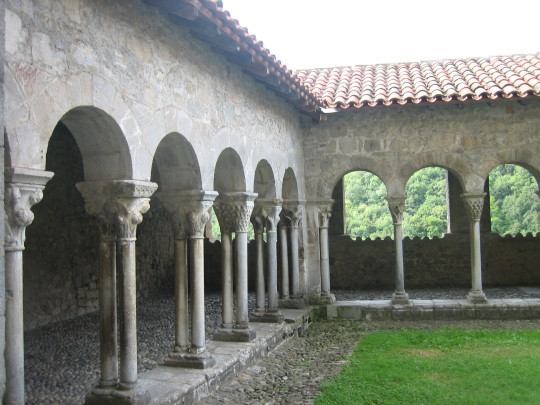
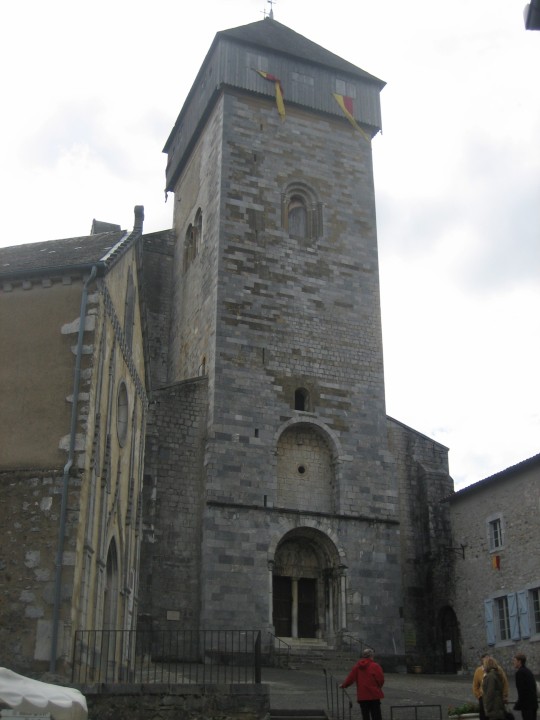

0 notes
